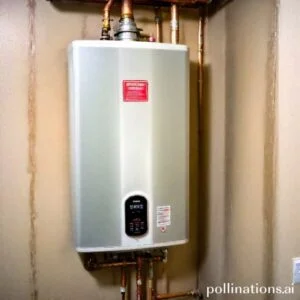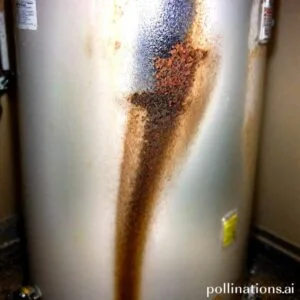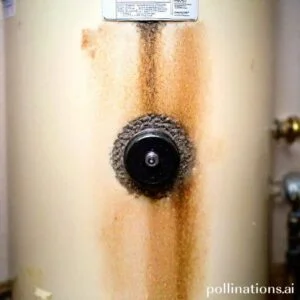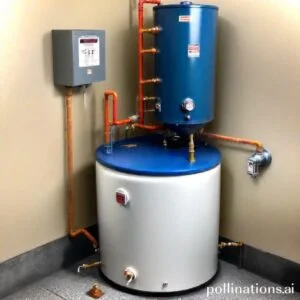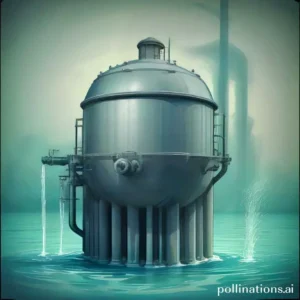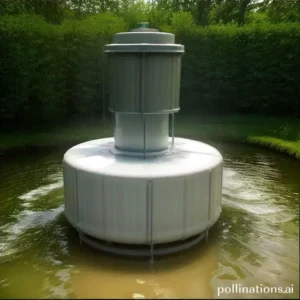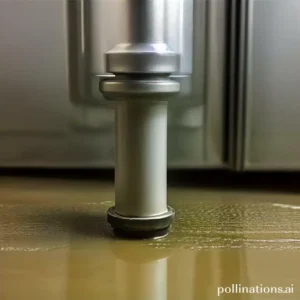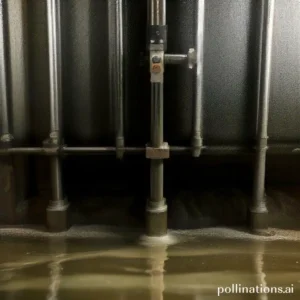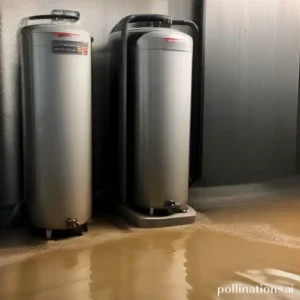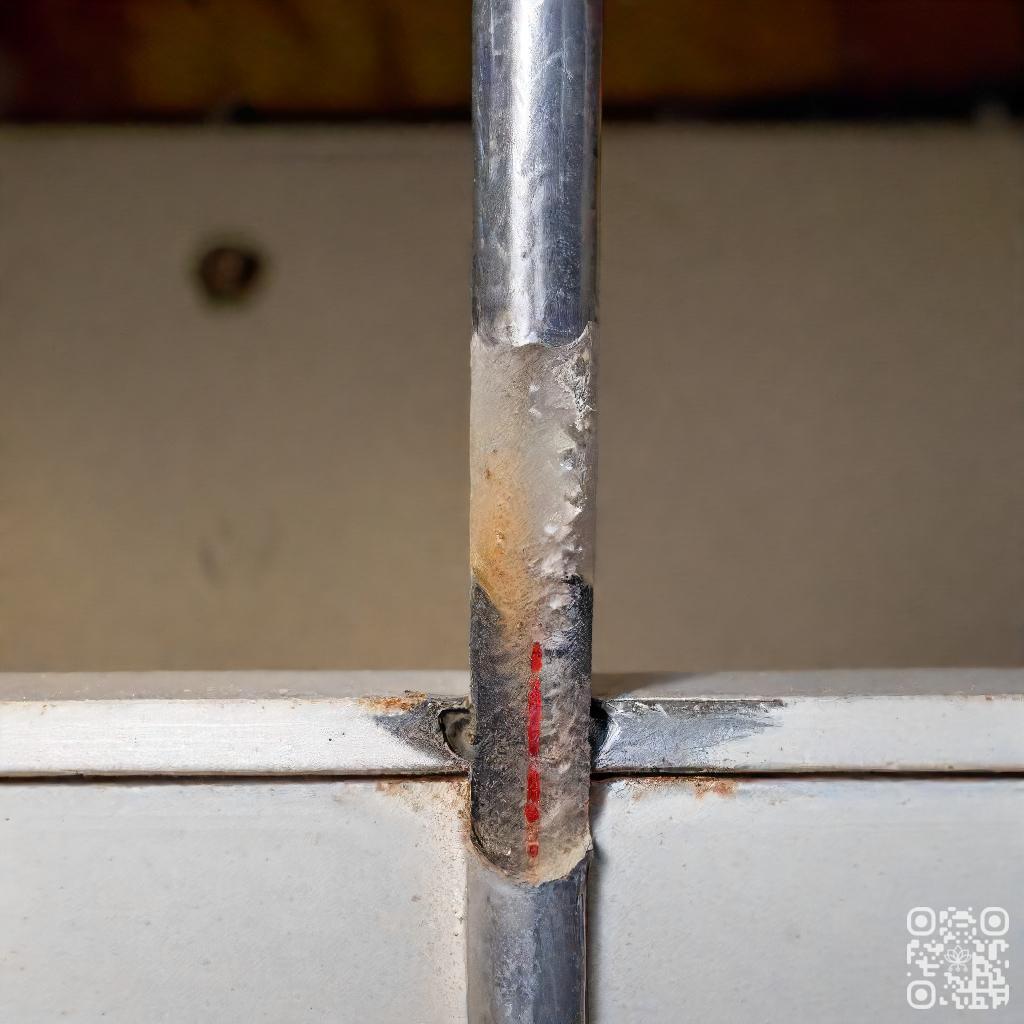
II. When sediment accumulates on the anode rod, it can create a barrier that prevents it from coming into contact with the water, rendering it ineffective and leaving the tank vulnerable to corrosion.
III. Regular maintenance, such as flushing the tank and replacing the anode rod as needed, can help prevent sediment buildup and ensure the anode rod is functioning properly to protect the water heater.
Sediment buildup can have a significant impact on the lifespan and effectiveness of your water heater’s anode rod. Over time, minerals and debris can accumulate, causing the anode rod to corrode faster and reducing its ability to protect your water heater from rust and corrosion.
Regular maintenance, such as flushing the tank and checking the anode rod, is crucial to ensure optimal performance and extend the lifespan of your water heater. By tackling sediment buildup, you can prevent costly repairs and ensure a reliable supply of hot water for your household.
What is an Anode Rod?
An anode rod is a crucial component of water heaters that helps prevent corrosion and extends the lifespan of the tank. It is typically made of a combination of metals, such as aluminum, zinc, or magnesium, that are more active than the steel tank itself. This sacrificial metal rod attracts corrosive elements in the water, sacrificing itself to protect the tank.
Definition and Purpose of Anode Rods
Anode rods are long, metal rods inserted into the water heater tank. Their primary purpose is to prevent the tank from rusting or corroding. They achieve this by attracting corrosive elements, such as dissolved minerals and sediments, which would otherwise attack the steel tank. The anode rod corrodes over time, sacrificing itself to protect the tank from corrosion.
Types of Anode Rods
There are different types of anode rods available, each suited for specific water conditions and tank materials:
| Type | Material | Recommended Water Conditions |
|---|---|---|
| Magnesium Anode Rods | Magnesium | Soft water |
| Aluminum Anode Rods | Aluminum | Hard water with high mineral content |
| Zinc Anode Rods | Zinc | Hard water with sulfur odor |
How Anode Rods Work to Prevent Corrosion
Anode rods work through a process called electrolysis. When water flows through the heater tank, it carries corrosive elements like minerals and sediments. These elements are attracted to the anode rod, causing it to corrode instead of the tank. By sacrificing itself, the anode rod prolongs the life of the water heater tank.
For example, if the water has a high mineral content, an aluminum anode rod is recommended. The rod will attract the minerals, preventing them from attacking the tank. Over time, the anode rod will corrode and need replacement, but this is a small price to pay compared to the cost of replacing the entire tank.
Regular inspection and replacement of anode rods are vital to ensure the continued protection of the water heater tank. Manufacturers typically recommend checking the rod every 1-3 years, depending on water quality and usage. Replacing the anode rod when necessary can help extend the life of the water heater and save on costly repairs or replacements.
Sediment Buildup in Water Heaters
Sediment buildup in water heaters can cause various problems and reduce the efficiency of your appliance. Cognizing the causes, negative effects, and how to detect sediment buildup is crucial for maintaining a well-functioning water heater.
Causes of sediment buildup
One of the primary causes of sediment buildup in water heaters is the presence of hard water. Hard water contains high levels of minerals such as calcium and magnesium, which can accumulate over time and form sediment at the bottom of the tank. Additionally, inadequate flushing and cleaning of the water heater can contribute to sediment buildup.
Negative effects of sediment buildup
Sediment buildup can have several negative effects on your water heater. In the first place, it can reduce the heating efficiency by insulating the heating element or burner from the water, making it harder for the appliance to heat the water effectively. This can lead to increased energy consumption and higher utility bills. Next, sediment buildup can cause corrosion and deterioration of the tank, reducing its lifespan. It can also affect the water quality by causing discoloration, foul odors, and strange tastes.
How to detect sediment buildup in your water heater
Detecting sediment buildup in your water heater is essential for timely maintenance. Some signs to look out for include reduced hot water supply, increased heating time, strange noises coming from the tank, and fluctuating water temperatures. You may also notice discolored water or sediments in the water when you drain a small amount from the tank. Regular inspection and maintenance can help identify sediment buildup before it causes significant issues.
To maintain your water heater and prevent sediment buildup, it is recommended to flush the tank annually or as advised by the manufacturer. Flushing involves draining the tank to remove accumulated sediments. You can also consider installing a water softener to reduce the mineral content in the water, minimizing the chances of sediment formation. Regular professional maintenance can help ensure the optimal performance and longevity of your water heater.
Importance of Anode Rods in Preventing Corrosion
How anode rods prevent corrosion
Anode rods play a crucial role in preventing corrosion in various water-based systems, including water heaters. These rods are typically made of aluminum or magnesium and are designed to attract corrosive elements present in the water, such as minerals and sediments. Consequently, anode rods sacrifice themselves to protect the metal lining of the water heater tank.
When the water heater is in operation, the anode rod releases electrons, which react with the corrosive elements in the water. This reaction creates a protective layer on the surface of the anode rod, preventing corrosion from occurring on the tank’s interior lining. Without anode rods, the corrosive elements would attack the metal tank directly, leading to rust and leaks.
Signs of a worn-out anode rod
Over time, anode rods can become depleted and worn out. It’s important to recognize the signs of a worn-out anode rod to ensure the continued protection of your water heater. One common sign is the presence of a rotten egg smell in the hot water. This odor is caused by the reaction between the anode rod and sulfur bacteria, indicating that the rod may need to be replaced.
Another sign to look out for is discolored water, especially if it appears rusty or has a reddish tint. This discoloration is a result of corrosion within the water heater tank, indicating that the anode rod is no longer effectively protecting the metal lining. Additionally, visible corrosion or signs of leakage around the water heater are clear indicators that the anode rod needs immediate attention.
How often to replace anode rods
The frequency of anode rod replacement depends on several factors, including the quality of your water supply and the type of anode rod used. In general, it is recommended to inspect the condition of the anode rod annually and replace it every 3-5 years. Although, if you have hard water or notice signs of corrosion, more frequent replacement may be necessary.
Regular maintenance and replacement of anode rods are essential to prolonging the lifespan of your water heater and preventing costly repairs. By ensuring that your anode rod is in good condition, you can enjoy hot water without the worry of corrosion.
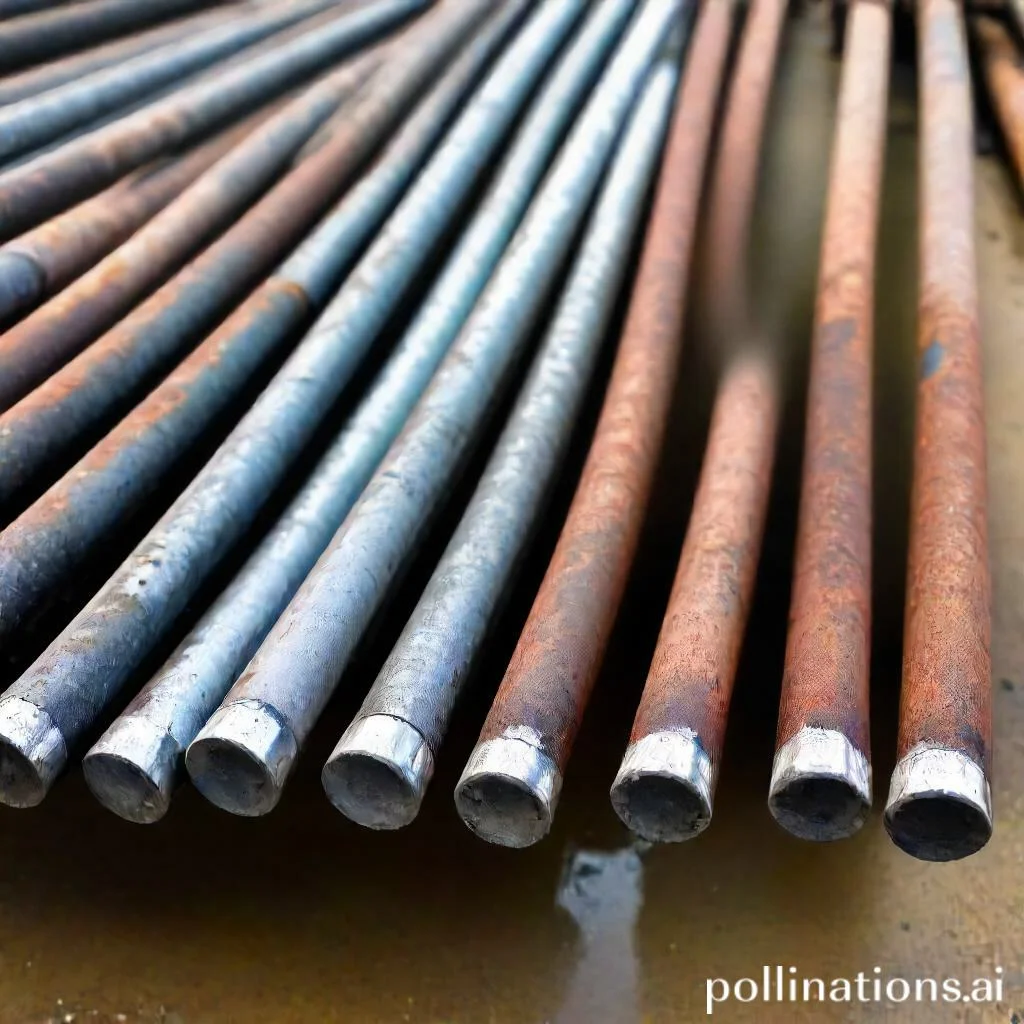
Maintenance and Replacement of Anode Rods
The anode rod is a crucial component of a water heater, as it helps prevent the tank from corroding and extends its lifespan. Regular maintenance and timely replacement of anode rods are essential to ensure the efficient functioning of your water heater. In this section, we will discuss how to maintain anode rods, provide step-by-step instructions for DIY anode rod replacement, and offer guidance on when it is advisable to hire a professional for anode rod replacement.
How to Maintain Anode Rods
Maintaining anode rods is relatively simple and can significantly prolong the life of your water heater. Here are some key steps to follow:
- Regularly inspect the anode rod for signs of corrosion or deterioration.
- If you notice significant erosion or if the rod is less than half its original size, it is time for a replacement.
- Flush the water heater tank annually to remove sediment buildup and maintain optimal performance.
- Check the water quality and adjust the anode rod replacement frequency accordingly.
DIY Anode Rod Replacement Steps
If you are comfortable with basic plumbing tasks, you can replace the anode rod yourself. Here is a step-by-step guide:
- Turn off the power supply to the water heater.
- Shut off the water supply to the heater.
- Drain the water heater tank to a level below the anode rod.
- Locate the anode rod’s hex head on top of the water heater.
- Using a suitable socket wrench, unscrew the anode rod in a counterclockwise direction.
- Remove the old anode rod and dispose of it properly.
- Apply plumber’s tape to the threads of the new anode rod.
- Insert the new anode rod into the water heater and tighten it in a clockwise direction.
- Refill the water heater tank and open a hot water faucet to release any trapped air.
- Turn on the power supply and allow the water heater to heat up.
When to Hire a Professional for Anode Rod Replacement
In some cases, it may be more prudent to enlist the help of a professional for anode rod replacement. Consider the following scenarios:
- If you are unsure about your plumbing skills or lack the necessary tools.
- If your water heater is still under warranty, hiring a professional can help avoid any potential voiding of the warranty.
- If your water heater is in a hard-to-reach location or if you are unable to safely access it.
- If you are experiencing other issues with your water heater that may require professional expertise.
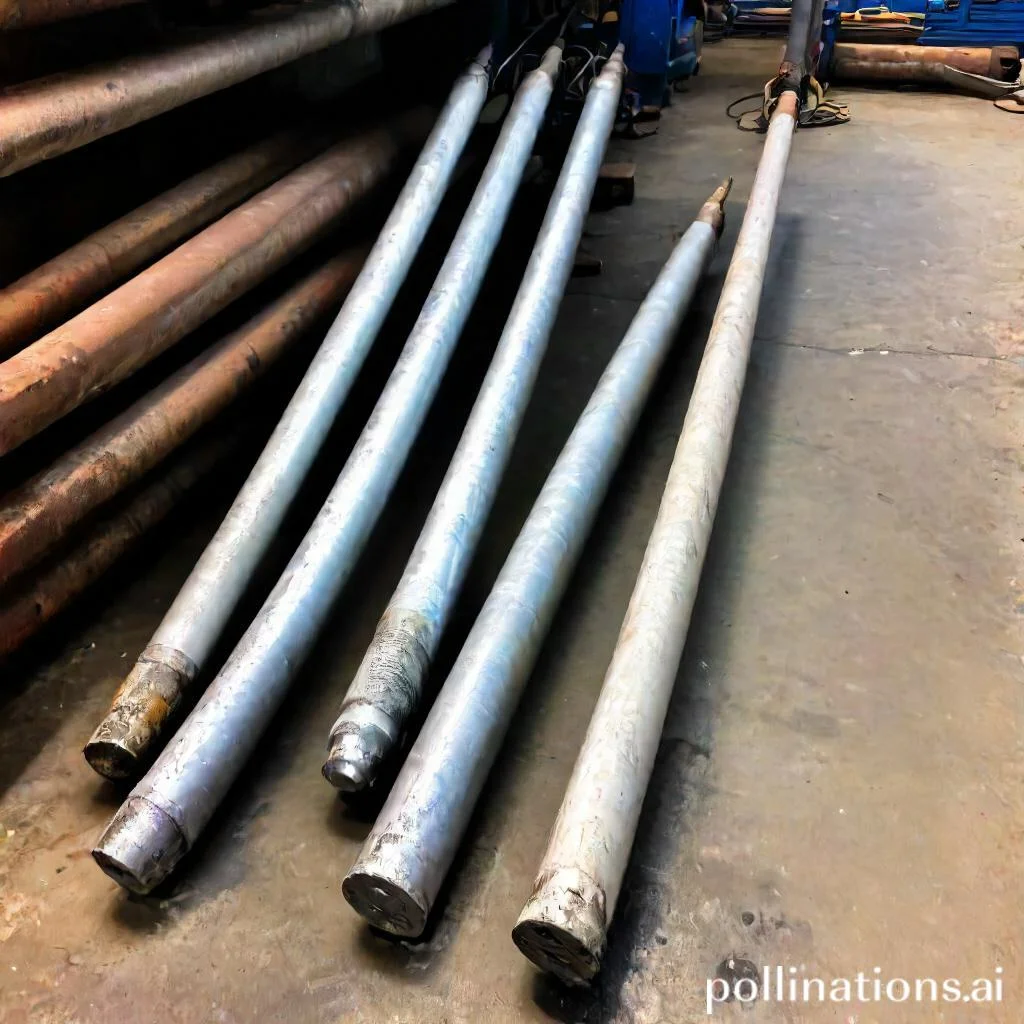
Alternative Solutions to Sediment Buildup and Corrosion
Sediment buildup and corrosion in water systems can lead to a range of issues, from reduced water flow to damaged pipes. It is essential to address these problems to ensure the longevity and efficiency of your water system. Here are some alternative solutions that can help combat sediment buildup and corrosion:
1. Water Softeners
One effective way to tackle sediment buildup and corrosion is by using water softeners. These devices work by removing minerals such as calcium and magnesium from the water, preventing them from accumulating in your pipes and appliances. With a water softener, you can enjoy cleaner, scale-free water throughout your home.
2. Sediment Filters
Installing sediment filters is another viable solution to combat sediment buildup. These filters are designed to trap and remove particles and sediments from the water, preventing them from entering your plumbing system. By removing these impurities, sediment filters can help extend the lifespan of your pipes and appliances, meanwhile also improving water quality.
3. Tankless Water Heaters
Consider upgrading to tankless water heaters, as they can help minimize sediment buildup and corrosion. Unlike traditional water heaters, tankless models heat the water on demand, eliminating the need for a storage tank where sediments can accumulate. This not only reduces the risk of corrosion but also provides a continuous supply of hot water, improving energy efficiency.
Bottom Line
Pertaining to the lifespan of your water heater, the anode rod plays a crucial role in preventing corrosion. Albeit, sediment buildup can significantly impact the effectiveness of the anode rod, leading to premature failure of the water heater. Regular maintenance, including flushing the tank and replacing the anode rod as needed, can help extend the life of your water heater and prevent costly repairs or replacements. It’s important to pay attention to the signs of sediment buildup, such as discolored water or strange noises coming from the tank, and take action promptly. By staying on top of maintenance and addressing sediment buildup, you can ensure that your water heater continues to provide reliable hot water for years to come.
Read More:
1. Sediment Removal And Water Heater Pilot Light Issues
2. Sediment Removal For Energy-Efficient Water Heaters

